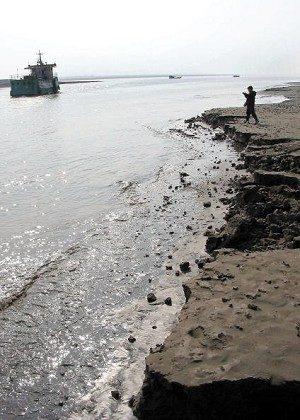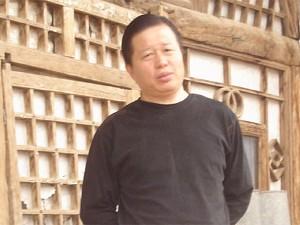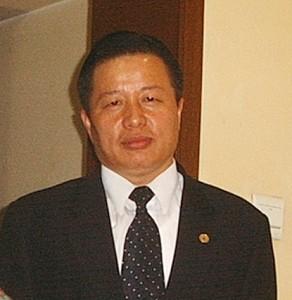China’s 792 Uranium Mine is one of the country’s most abundant sources of uranium. Yet, after employees exposed the mine’s malpractices leading to severe radiation problems the mine is now becoming the cause of worldwide concern.
The 792 Uranium Mine is located in Diebu County of the Tibetan Autonomous Area in South Gansu Province. It was originally established under the Ministry of Nuclear Industry as one of China’s most important sources of uranium, but was closed as a matter of policy in 2002. According to the geological reports at that time, the No. 792 Uranium Mine had abundant supplies of uranium that could have been mined for an additional 70 to 90 years.
Sun Xiaodi, an employee of the mine, has been continually petitioning central authorities for years. In a recent radio interview he claimed that the uranium mine employees have poured improperly-handled radioactive materials into the Yangtze River, affectively contaminating the water, and that sufficient evidence have been collected to prove it.
Sun stated, “We have collected hard evidence. The contamination of the river should be immediately examined by the international community. Even now, they continue to pour radioactively contaminated water into the Bailong River without any handling, and without any concern for the hazards that exist.”
“We took the samples of the water at about one in the morning one day. The samples indicate that residents near and downstream of the Bailong River, as well as residents in cities along the Yangtze River, are in for big trouble. Ores soaking into the water are being washed by the water, which means that uranium is moving through the water and thus contaminating the water.”
The authorities involved not only pour the radioactively contaminated water, which wasn’t properly handled in the first place, into the Yangtze River, but also sell radioactively contaminated devices and ore to places all over China. As a result, laborers across the country have taken part in mining for uranium without taking any preventative measures. “They have transported pipes used for draining contaminated water to Diebu County and sold them to the ignorant Tibetans,” said Sun.
“Because these people have no awareness of radioactive contamination, they have no idea of radioactive protection and prevention. Aged laborers were in tears after seeing scenes in which children sat smoking on a pile of ore and even made their bed on the ore and sleep inside the holes of ore. It’s absolutely shocking. The ore can cause lung cancer in human bodies.”
Quite a few residents have begun suffering a high incidence of cancerous tumors resulting from radiation. When interviewed, Sun Xiaodi also revealed that supervisors in charge of the uranium mine have taken bribes of over 100 million yuan (approximately 12.5 million US dollars) originally intended for relocating employees.
“Every day they live a luxurious life, enjoying delicacies and wine to their heart’s content. Their extravagance is amazing. I would like to reveal one more detail here: The central government and the Ministry of Finance provided the 792 Uranium Mine with money for transferring the soldiers [who worked at the mine] into civilians and helping them build new residences. The sum of money provided could be hundreds of millions of yuan (tens of millions of US dollars). So what did they build with the money? - Nothing but some thoroughly fragile structures. But where is the money? They took it,” he stated.
According to Sun, after the uranium mine went bankrupt, the soldiers previously active at the mine were transformed into civilians. Meanwhile, the local government and officials of the nuclear industry secretly hired employees to mine for uranium, but no one has any knowledge of the whereabouts of the mined uranium.
“I will talk about the bankruptcy of the 792 Uranium Mine,” Sun continued. “All of their written reports were false. They simply changed a military enterprise into a civilian enterprise, and continued with large-scale mining. They are still mining the uranium on a large scale.”
“Who is their trading partner? Who did they sell the uranium to? And at what price did they sell it? [None of these questions have been answered.] It is enshrined in the CCP’s constitution that civilians are the masters of the state. Given this, we are thus naturally the masters of the mines. So don’t we have the right to ask the government: What are you mining the uranium for? Who did you sell it to? Was it used to promote peace or violence?”
During Wen Jiabao’s visit to Australia in April, China will sign a contract with Australia to buy uranium from Australia. The Australian government expressed that only under the circumstances that the materials will be used for peaceful purposes can the uranium be sold to China.
The 792 Uranium Mine was closed as a matter of policy, but it is clearly still being mined. This then raises the question of whether the purpose of Chinese government is as what it proclaims to be. The deal has naturally met with significant opposition within Australia.




Friends Read Free